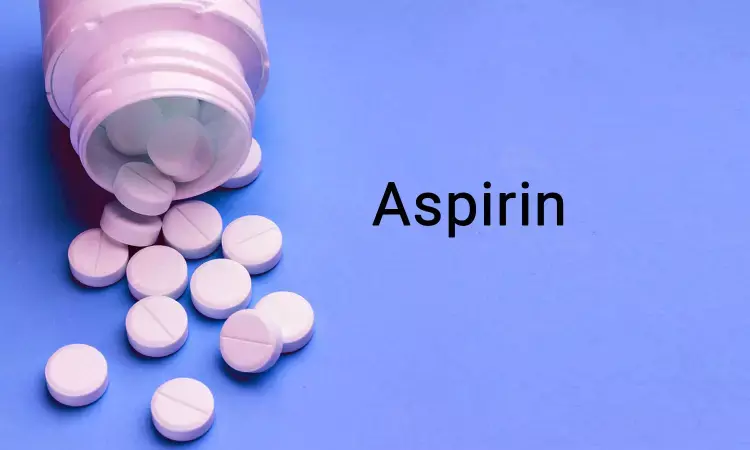- Home
- Medical news & Guidelines
- Anesthesiology
- Cardiology and CTVS
- Critical Care
- Dentistry
- Dermatology
- Diabetes and Endocrinology
- ENT
- Gastroenterology
- Medicine
- Nephrology
- Neurology
- Obstretics-Gynaecology
- Oncology
- Ophthalmology
- Orthopaedics
- Pediatrics-Neonatology
- Psychiatry
- Pulmonology
- Radiology
- Surgery
- Urology
- Laboratory Medicine
- Diet
- Nursing
- Paramedical
- Physiotherapy
- Health news
- Fact Check
- Bone Health Fact Check
- Brain Health Fact Check
- Cancer Related Fact Check
- Child Care Fact Check
- Dental and oral health fact check
- Diabetes and metabolic health fact check
- Diet and Nutrition Fact Check
- Eye and ENT Care Fact Check
- Fitness fact check
- Gut health fact check
- Heart health fact check
- Kidney health fact check
- Medical education fact check
- Men's health fact check
- Respiratory fact check
- Skin and hair care fact check
- Vaccine and Immunization fact check
- Women's health fact check
- AYUSH
- State News
- Andaman and Nicobar Islands
- Andhra Pradesh
- Arunachal Pradesh
- Assam
- Bihar
- Chandigarh
- Chattisgarh
- Dadra and Nagar Haveli
- Daman and Diu
- Delhi
- Goa
- Gujarat
- Haryana
- Himachal Pradesh
- Jammu & Kashmir
- Jharkhand
- Karnataka
- Kerala
- Ladakh
- Lakshadweep
- Madhya Pradesh
- Maharashtra
- Manipur
- Meghalaya
- Mizoram
- Nagaland
- Odisha
- Puducherry
- Punjab
- Rajasthan
- Sikkim
- Tamil Nadu
- Telangana
- Tripura
- Uttar Pradesh
- Uttrakhand
- West Bengal
- Medical Education
- Industry
Aspirin use linked to lower bowel cancer risk: Study

London- Researchers have found that effects of a regular dose of aspirin taken to reduce the risk of inherited bowel cancer lasts at least 10 years after stopping treatment.
The international trial - known as CAPP2 - involved patients with Lynch syndrome from around the world and revealed that two aspirins a day, for an average of two-and-a-half years, reduced the rate of bowel cancer by half.
The study, led by experts at the Universities of Newcastle and Leeds in the UK, published in the journal The Lancet, is a planned double-blind 10-year follow-up, supplemented in more than half of recruits with comprehensive national cancer registry data for up to 20 years.
"I had an idea 30 years ago that people with a genetic predisposition to colon cancer could help us to test whether aspirin really could reduce the risk of cancer," said study researcher Sir John Burn from Newcastle University.
"Patients with Lynch syndrome are high risk and this offered statistical power to use cancer as an endpoint - they are like the canaries in the mine who warned the miners that there was gas," Burn added.
The study further strengthens the National Institute for Health and Care Excellence (NICE) recommendation on taking daily aspirin for those at high risk and supports wider use of aspirin to prevent cancer.
Based on the preliminary five-year data from the CAPP2 trial, NICE recommended that aspirin should be offered for the prevention of bowel cancer in adults with Lynch syndrome.
According to the researchers, it took a long time to start the trial and to recruit enough people in 16 countries, but this study has finally given us an answer.
The study involved 861 patients with Lynch syndrome, which affects about one in 200 people in the population. These people have a genetic problem with DNA repair, making them at much higher risk of cancers like thsoe of bowel and womb.
A group of 427 patients were randomised to aspirin continuously for two years and 434 were allocated to placebo group and then they were all followed for 10 years.
Out of those given two aspirins each day (600mg) there were 18 fewer colon cancers, representing a drop of 42.6 per cent.
When all 163 Lynch syndrome cancers are included in the analysis - such as cancer of the endometrium or womb - there was an overall reduced risk of cancer of 24 per cent in those taking aspirin or 37 per cent in those who took aspirin for the full two years.
"Two aspirins a day for a couple of years gives protection that lasts more than 10 years," Burn said.
"For people at high cancer risk, the benefits are clear - aspirin works. Our new international trial, CaPP3, will see if smaller doses work just as well," Burn added.
Medical Dialogues Bureau consists of a team of passionate medical/scientific writers, led by doctors and healthcare researchers. Our team efforts to bring you updated and timely news about the important happenings of the medical and healthcare sector. Our editorial team can be reached at editorial@medicaldialogues.in.
Dr Kamal Kant Kohli-MBBS, DTCD- a chest specialist with more than 30 years of practice and a flair for writing clinical articles, Dr Kamal Kant Kohli joined Medical Dialogues as a Chief Editor of Medical News. Besides writing articles, as an editor, he proofreads and verifies all the medical content published on Medical Dialogues including those coming from journals, studies,medical conferences,guidelines etc. Email: drkohli@medicaldialogues.in. Contact no. 011-43720751


